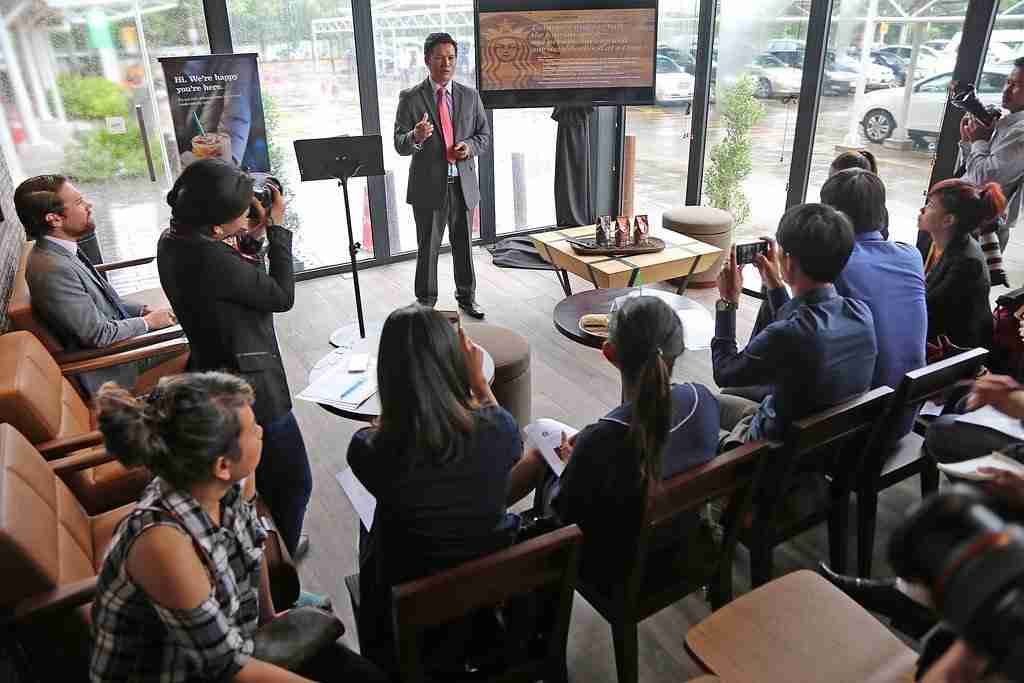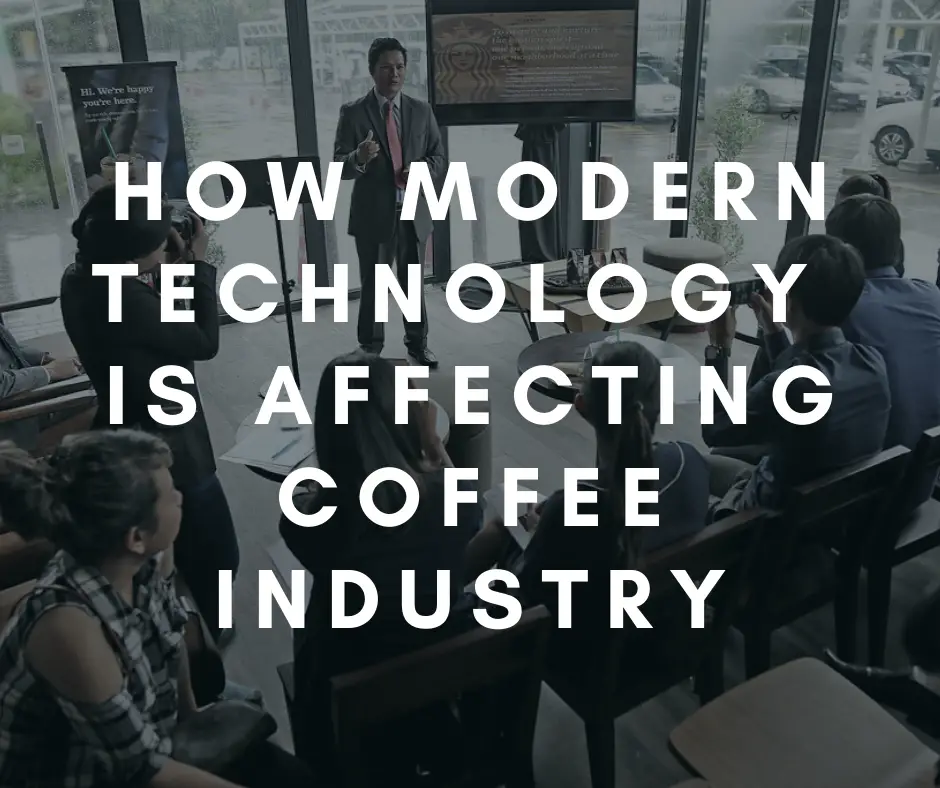
The coffee industry is reaping the benefits of a global coffee culture that has billions of coffee drinkers worldwide, taking at least one cup of coffee every day. Indeed, it is estimated that global consumption grows at least 2.5% every year.
This increase in the consumption of coffee can be attributed to The Third Wave. This is a movement within the coffee space that is making concerted efforts towards elevating the present “lowly” status of coffee to an elevated one in the realm of wine.
The Third Wave movement is a perspective that seeks to change everything about coffee: starting from the farm where it is grown through its processing method to the standards for quality.
As the demand for quality coffee increases globally, one source of support for the industry as it strives to catch up to increasing demand is modern technology. There appears to be a blossoming relationship between advanced technology and the coffee industry.
Customers have developed new tastes, and coffee providers are seeking new ways to take advantage of the plentiful demand for coffee. Modern technology thus serves as a service facilitator that enables stakeholders in the coffee industry.
Why the Coffee Industry Needs Modern Technology
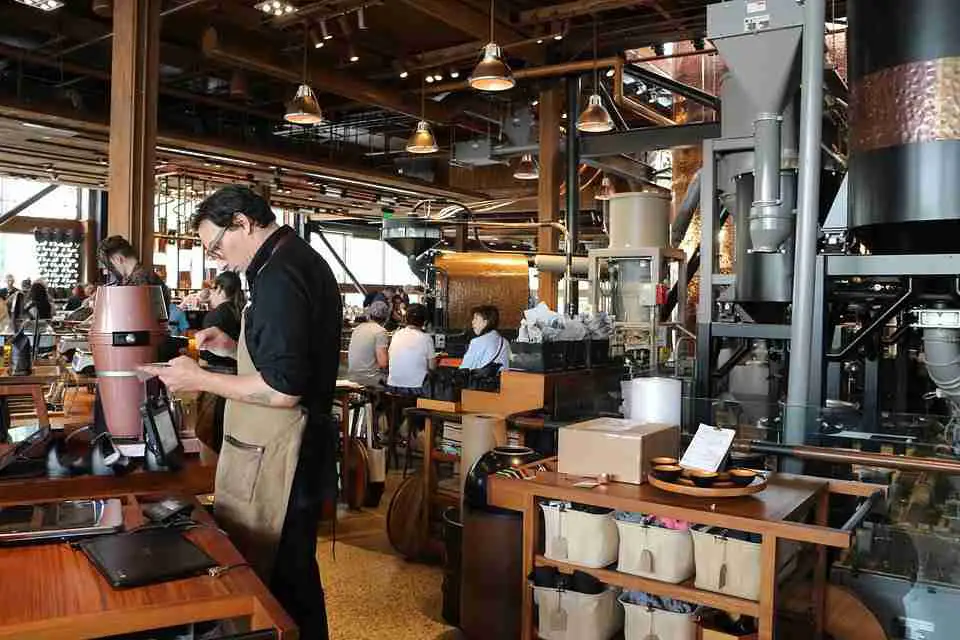
Like we noted earlier, global coffee consumption grows at an average of 2.5% annually. This growth rate is something like a gift and a curse. It is taking a toll on coffee producers because it creates the challenge of having to increase productivity while decreasing costs.
Climate changes are seriously influencing the production and supply of coffee. There are irregular rates of precipitation that has led to unpredictable harvests and a corresponding increase in prices.
The situation is further aggravated by a shortage of labor because of the low-paying yet tedious nature of coffee farming.
To worsen an already bad situation, there is a change in preferred coffee types at the moment. There is a new craze for new flavors and a willingness to experiment with new kinds of beverages.
This is where the blessings come into play. There is a change in the direction of tastes these days. Quality filter coffee, cold and nitro brew, coffee-cherry tree, processed coffee, as well as other gourmet novelties are new tastes that everyone can’t stop talking about these days.
The coffee industry is fighting to stay abreast of the new opportunities springing up where these new trends in coffee have arisen. This is where modern technology comes to play.
Modern technology has affected the coffee industry on at least two fronts: inside coffee shops and outside coffee shops. Let’s take a look at both fronts.
Influence of Modern Technology in Coffee Shops
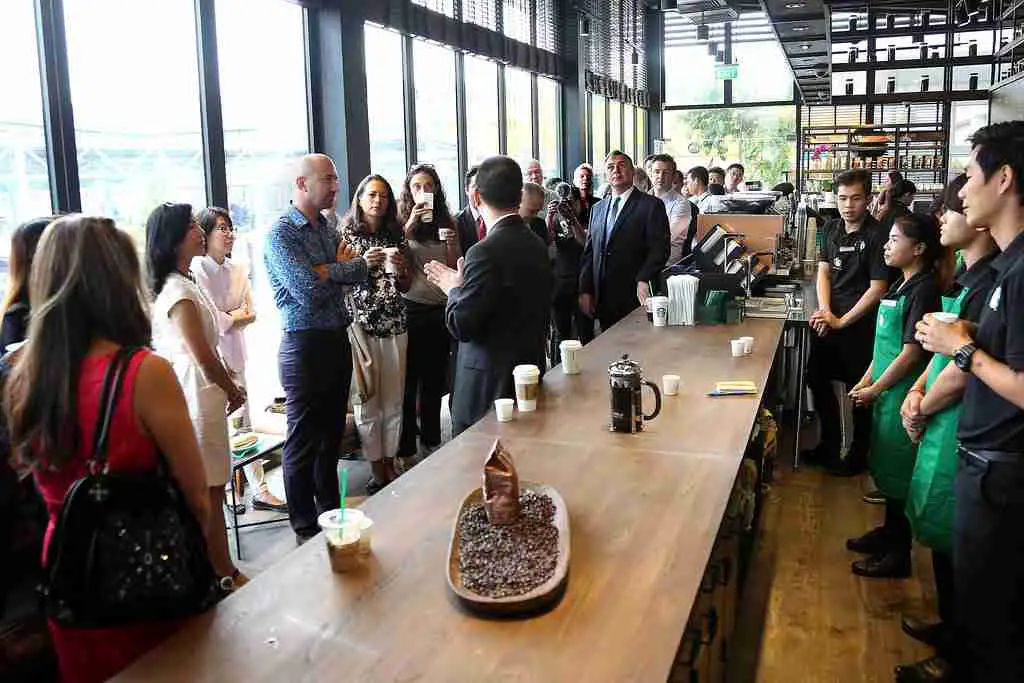
Mobile Printers and Recipe Labels: The increase in demand in coffee shops has made the speed of service essential. This is because the speed of service increases customer satisfaction. It also prevents the coffee shops from losing customers who have to wait in long, slow lines to get a cup of coffee.
Modern technology has availed coffee shops with mobile printers that integrate with the POS. This allows coffee shops to apply order information directly from transactions to recipe labels. Integrated mobile printers serve to improve order accuracy (which is key to customer satisfaction).
Mobile Order Takers: With mobile order takers, long lines become non-existent. Mobile orders enable the coffee shop staff to take orders from seated customers. This serves to increase the way orders are received and delivered. It also helps to promote personal engagement with the coffee shop clients.
Self-Service Kiosks: Self-service allows customers to place orders that get to the baristas. The baristas produce the coffee that is then delivered to the customers. Self-service kiosks help coffee shops manage their customer lines while operating more efficiently. Employees are allowed to focus on customer service, drink production, and merchandise.
Data Insights: Certain apps give business owners access to more data insights than ever. This way, they can stay abreast of showcase inventory levels, top-sellers, and even employee theft. Detailed analytics of data gotten from these sources provide valuable information on how risks can be minimized and profits maximized.
Convenience: Easier ordering and payment options have helped the coffee industry grow. Since most of the billions of coffee drinkers all over the world are signed up to one messaging app or the other, the issue of convenience just got solved. Satisfaction will be improved as customers will be able to order their coffee via message, and it will be processed and available by the time they show up at the coffee shop. Such customers will be able to pay by credit or debit card, Chase Pay, Visa Checkout, or Apple Pay. Then there is the iPad POS System that facilitates the payment for coffee by offering several tools.
Taste: Modern technology is also influencing the quality of the coffee being made by baristas. Baristas can now be more precise with their art and craft. As such, the quality of the coffee brewed, stays consistent regardless of the shop. Modern technology can create this scenario via data collection and management. Water temperature, brew time, and volume(among others) are measured, keenly analyzed, and then documented in the database. This improves the brewing process resulting in premium quality coffee that everyone loves. It works best for coffee franchises with a standard taste and coffee culture that they have to maintain across their chain of shops. All that needs to be done is to reproduce similar results using a particular formula.
Increased Standards: Modern technology has made it possible to attain new levels of standardization in the coffee industry. Now, some applications help the measurement processes, thus allowing the baristas to make more precise measurements. These apps also aid the collection of data that can be mined for insights beyond improving the standardization process by facilitating accurate judgments. With these measurement apps, issues with variation in coffee made by different baristas are eliminated. The increased standardization process has made attaining higher levels of standardization easy.
Influence of Modern Technology outside Coffee Shops

As modern technology has affected coffee shops’ in-store operations, it has also influenced other coffee-related activities outside coffee shops. Thanks to the emergence of new technologies on the digital scene, the coffee industry is a constant flux of innovation.
There are now apps that can be used to record production data. This kind of data is then used to make the most of minimal labor while increasing coffee quality. Modern technology has also afforded the coffee industry social media marketing that can be used to find direct buyers for coffee products.
Enhanced Production Processes
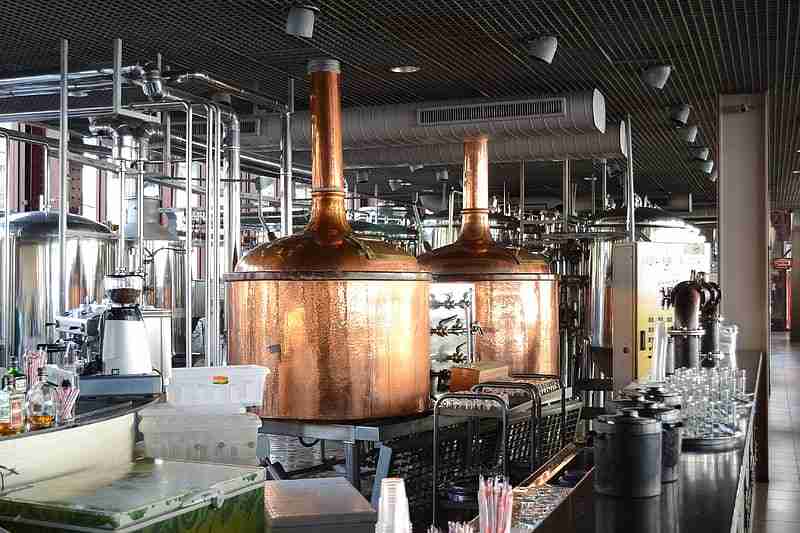
Modern technology is enhancing the source of the coffee that everyone is enjoying, the coffee farm. Some applications help coffee growers to collect and share progressively detailed information on their coffee crops.
These days, armed with these apps, the focus is now on the precise origins, the growing altitudes for the coffee crops, the exact harvest date, and other things like the moisture content of the soil(among other factors).
An example of one of the apps that are making waves in the coffee-growing space is Cropster. This specially-designed software feeds coffee production data into the system, which is then shared with other growers in the production line. This shared information is also merged with the roasting process and aids quality analysis.
Modern technology supports an emphasis on data, which facilitates the fine-tuning of the coffee production cycle, which starts with seeds planted into the ground and ends when coffee is dispensed into cups. Sharing data on the coffee production process solves issues of the cultural disconnect between farmers and roasters. With the innovations ushered by modern technology, farmers in the industry can earn more.
This, in turn, will make them embrace new practices that will let them earn even more money. The implication is that more farmers will be willing to grow coffee once they find out that the application of modern technology makes coffee-growing lucrative.
Enhanced Information Exchange
With modern technology, communication between producers is enhanced. One of the challenges of coffee production is poor infrastructure and vast distances between farms. Advanced technology makes it easy for coffee producers in different regions, countries, and continents to connect.
This enhanced communication between diverse coffee producers creates a vast collection of valuable knowledge. This repository of information enables feedback and allows them to proffer solutions to problems related to coffee production.
Conclusion
The coffee culture is so pervasive that billions of cups of coffee are drunk all over the world every day. This is probably why preparing coffee has become more sophisticated and demanding. Fortunately, modern technology and the coffee industry now work hand-in-hand to drive growth from the farm to the cafe.
The coffee industry is trying to meet the ever-growing demand by leveraging new technologies to provide more convenient, speedy, and personalized services to customers. Stakeholders in the industry’s production sector are also benefiting from the innovations in the coffee industry occasioned by modern technology.

